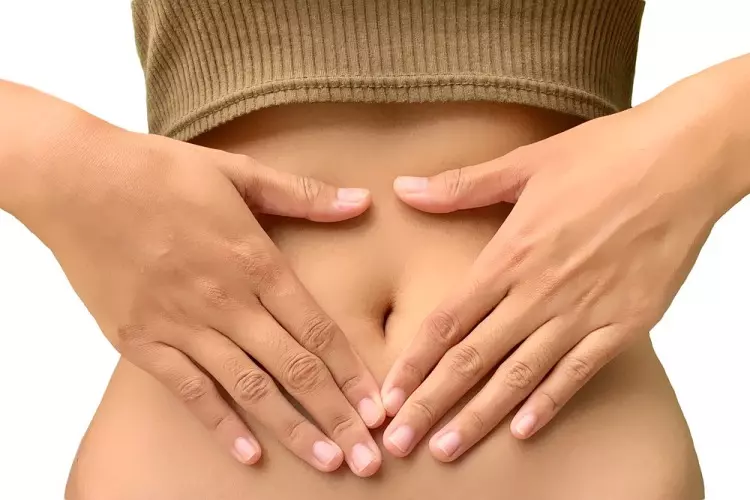
Photo Credit: by Pixabay.com
Are you tired of feeling bloated and uncomfortable after every meal? Do you find yourself constantly running to the bathroom or struggling to go at all? You may be one of the millions of people suffering from Irritable Bowel Syndrome (IBS). IBS is a common gastrointestinal disorder that can cause symptoms such as abdominal pain, bloating, and changes in bowel movements.
There are two subcategories of IBS–IBS-D where diarrhea is a predominant symptom or IBS-C, where constipation symptoms are more frequent. Some individuals have symptoms of both diarrhea and constipation that occur in a cyclic manner. While the exact cause of IBS is unknown, abnormal regulation of nerve impulses within the digestive system and imbalances in gut bacterial composition are thought to play a role. Recent studies however have shown that the diabetes medications that have become popular for weight loss–Semaglutide, Tirpetazide and this class of medications may also contribute to IBS related symptoms. It is believed to be due to the fact that this class of medications slows down motility in the gut through the vagus nerve.
In fact, according to recent studies, weight loss and diabetes medications like Ozempic, Wegovy, and other GLP-1 drugs used for weight loss are associated serious gastrointestinal side effects in people without diabetes. These medications can slow the passage of food through the stomach, which can lead to serious digestive problems such as stomach paralysis, pancreatitis and bowel obstructions. These side effects can sometimes get better over time, but at least 10% of patients who start these drugs have to be taken off of them because the side effects do not improve. A more common symptom associated with these medications is constipation.
While multiple factors affect IBS, the following factors can exacerbate symptoms:
● Dietary factors: Certain foods can trigger IBS symptoms, such as chocolate, milk or alcohol. They may cause either constipation or diarrhea.
● Infections: Research suggests a link between IBS and food poisoning. Gastroenteritis may trigger post-infectious IBS.
● Stress: IBS sufferers frequently report worsening of symptoms during stress. Even early life stressors can play a role in causing IBS.
● Genetic factors: Genetics, hormonal factors or digestive organs with a higher sensitivity to pain or medications have also been shown to be risk factors.
● Other underlying health concerns: Sometimes, the development of IBS may be related to other underlying health concerns, such as gastroesophageal reflux disease (GERD), indigestion (dyspepsia), intolerance or sensitivity to certain foods, chronic stress, and chronic infections.
Certain Triggers are also associated with IBS flare ups:
IBS-D:
● Bacterial or parasitic infections of the intestines
● Food poisoning
● Stress
● Medications such as amitriptyline and sorbitol
IBS-C:
● Low-fiber diet
● Dehydration
● Lack of physical activity
● Certain medications such as the popular weight loss medications semaglutide and tirzepatide
TREATMENT OPTIONS
Natural treatment options for IBS:
1. Peppermint, ginger, and fennel: These herbs have antispasmodic properties that can soothe the digestive system and ease IBS symptoms. They can be consumed as tea or added to meals.
2. Apple cider vinegar: ACV has been shown to ease digestive problems. Mix 3 drops of apple cider vinegar with water and honey or add a few drops to your herbal tea or fruit juice.
3. Probiotics: Taking probiotics is a simple gut-friendly habit to get into. The specific probiotics that IBS sufferers should look out for are lactobacillus acidophilus and Bifidobacteria.
4. Plant based fiber rich foods: Increased consumption of fruits and vegetables with higher fiber has been shown to help.
5. Exercise: Regular exercise can help regulate bowel movements and reduce stress, which can trigger IBS symptoms.
6. Stress reduction: Stress can trigger IBS symptoms, so it is important to find ways to reduce stress, such as meditation, yoga, or deep breathing exercises.
7. Herbal medicines: Some herbal medicines, such as Aloe vera and Mentha piperita, can be beneficial in controlling IBS symptoms. However, more research is needed to evaluate the effects of herbal preparations in IBS.
8. Abdominal massage: Visceral abdominal massage has been shown to be helpful in individuals with IBS-C. Cureus | Effectiveness of Osteopathic Manipulative Treatment in Treating Symptoms of Irritable Bowel Syndrome: A Literature Review
9. Here is a list of some of the more common medications available for IBS. Always consult with a healthcare provider before trying any new medication.
● Linzess Buy Linzess Online – Linaclotide Canada
● Polyethylene glycol (PEG) laxatives such as Miralax
● Motilium Buy Motilium Online – Domperidone Canada
● Tricyclic antidepressants (TCAs) such as Elavil
● Antispasmodics such as hyoscyamine
There is no denying that irritable bowel syndrome can have a significant impact on an individual’s life, but approaching the condition with the preventive measures discussed can help. Discuss with your doctor to see what measures can work best for you.
References:
https://www.everydayhealth.com/weight/weight-loss-drugs-like-ozempic-tied-to-increased-risk-of-severe-stomach-problems/
https://www.healthline.com/health/irritable-bowel-syndrome
Your email address will not be published. Required fields are marked with *.